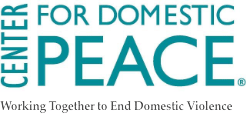What to do If You Witness Abuse
Download COVID Tips Sheet here!
Read our blog post on how to help a friend during COVID by clicking here.
Actions you can take to help someone you know:
-
- If you would like to talk to a trained advocate about your friend, call our bilingual hotline anytime, day or night.
- Learn the warning signs of an unhealthy relationship so you can be educated about the issue. (click to read those here)
- Don’t blame or make your friend feel guilty. Domestic violence is complicated and many stay in relationships that are unhealthy for a variety of reasons, so lend an ear or shoulder. Let them know you are a safe place to come to.
- Let the individual know that without intervention, abuse often escalates in frequency and severity over time. Seek expert assistance. Make referrals only to specialized domestic violence programs, not to couples counseling.
- Some think calling the police is the best option, but that can be tricky. There are many things to consider before you call. Click to read further information on this topic from the National DV Hotline.
Actions you can take if you hear abuse next door or witness it:
If you are aware that the abusive partner has a history of violence, is aggressive, or you have any other concerns for your well-being – do not intervene. You always have the option of making an anonymous 911 call.
Other things you might consider doing:
- Speak with the person you believe is at risk, in person, the next day. You might greet that person with a question like, “Hey, I heard some noises that concerned me last night. Are you okay?”
- Be sure to approach the person in a safe, private space, listen to them carefully and believe what they have to say.
- Never blame the person or ask what they did to “provoke” their partner.
- Let them know the abuse isn’t their fault, and that they deserve support.
- You might give them C4DP’s contact information. 24-Hour Hotline 415.924.6616.
- If you are ever concerned for the individual’s immediate safety (or your own), you do have the right to contact the police. You can request a wellness check, anonymously.
- If the survivor decides to press charges against the abusive partner, your statement can be one way to help them document what they’ve experienced.
Actions you can take if you are out in public, maybe at a park or restaurant, and you witness a person being abused or attacked.
- Call the police.
- If you are in a place of business, approach the manager, notify them of the situation, and ask them to call the police.
- You can use your phone to video record the abuse so there is documentation available from a third-party witness to provide to authorities as evidence.
- If others are around, and you think it is safe to do so, do something radical – like shout “STOP,” “WE SEE YOU,” “NO VIOLENCE!”
Actions you can take if you witness your friend or relative saying controlling or abusive words to their partner. Perhaps they are threatening or intimidating them.
- Confront them privately, or if it’s okay to do so, say something in the moment to interrupt the behavior, such as:
- “I was uncomfortable in the way you were talking to (name)… It seemed like you were making them feel uncomfortable. Were you aware this was happening?”
- “Hey, let’s stop for a moment. I’m feeling uncomfortable with what is happening here. I want to make sure everyone here at this gathering is treated with respect and is comfortable, so let’s change it up.”
- In addition to the above, if there is an opportunity, share with them available resource information, such as the ManKind program. 415.457.6760
- Check in with their partner, and ask if they are okay.
Domestic violence is a complicated issue, and a person’s safety is paramount. Before you act on any of these scenarios, always remember to first keep yourself safe. If you have any questions, our advocates are ready and available to coach you through any scenario you may witness.
